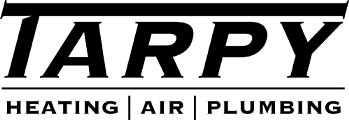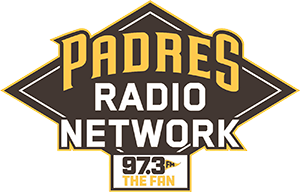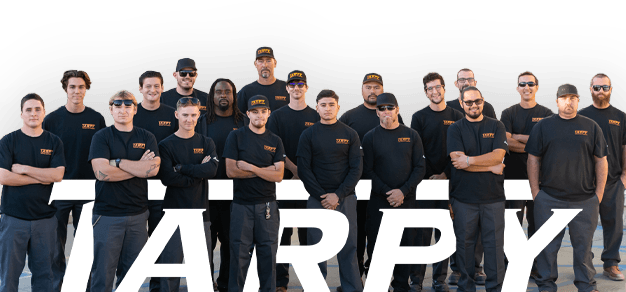Each year, millions of Americans are affected by wildfires that are not close enough to cause them to evacuate but are close enough to compromise their Indoor Air Quality significantly.
Homeowners often ask whether their air conditioner, heat pump or mini-split will filter out smoke. The answer is yes, but with a number of caveats. Read on to learn more.
Air Conditioning
Air conditioners, heat pumps and mini-splits do not need air drawn in from the outside. The reason for this is that these systems do not generate cool air directly but rather cool your home by transferring heat energy from within to the outside air. That means that it is safe to run your AC system while affected by wildfire smoke.
HVAC systems do have air filters, and these filters do filter the particulate matter in smoke — to a degree. However, it is important to note that HVAC filters are not intended to help maintain good indoor air quality but rather to keep the HVAC system free of particulate matter. In other words, your AC is not likely to filter your air in a way that makes it easier to breathe.
There are filters available with higher MERV ratings that can filter the air better. Yet, these are harmful for HVAC usage because they increase static pressure and thus reduce airflow. In the end, using a higher-MERV HVAC filter will likely do little for air quality but will increase your cooling costs and may harm your system.
Mechanical Ventilation
Ventilation systems vary from home to home. It is important to understand how yours functions and how you can control it. If you have a furnace, for instance, that system will draw air in from outside. If you live in a newer home, it is likely that you can set your ventilation system for various modes, such as recirculation, which is what you want to choose when trying to keep smoke out of the home. In an older home, it may be necessary to close any intake dampers manually in order to keep the outside air out.
If you live in an area often affected by wildfires, you may want to consider investing in an HRV or ERV ventilation system. These technologies provide energy efficiency benefits, but they can also be useful when dealing with wildfire smoke. They provide both recirculation and air exchange modes, and according to the U.S. EPA, systems with a MERV rating of 13 or higher are effective at filtering the particulate matter in smoke. This gives you the option, at times, to let “fresh” air into the home.
Air Sealing and Natural Ventilation
It is also important to have your home air sealed if you live in an area affected by wildfires or any serious air pollution, and all homeowners may want to consider it for the energy-efficiency benefits. In fact, all new homes are air sealed, which is why advanced ventilation systems have become so important.
Examples of natural ventilation include opening a window or door, which you never want to do when there is wildfire smoke in your area. But there is also a type of natural ventilation called infiltration, which is when outside air penetrates the home through cracks and other imperfections. Infiltration is particularly problematic during a wildfire and can make it difficult to keep your home smoke free.
Use Appropriate HVAC Filters and Change Them as Needed
Although HVAC filters do not purify the air per se, they are still vital to the health of your system and keeping your ductwork free of accumulation. Most systems require filters with a MERV rating between 6 and 8. Keep extras on hand. Visually inspect them on a frequent basis during the entire period that wildfire smoke is a problem, and swap them out as needed. While washable electrostatic filters are an option, they are generally not advised during a wildfire for practical reasons.
Dust Often
Keeping your home as dust free as possible is always important but particularly during a wildfire. The reason for this is that dust traps pollutants and actually exacerbates them by rereleasing them over time. Dust at least once a week and more often if possible. Dust room-by-room in a top-to-bottom fashion, and then, vacuum that room using a vacuum with a HEPA filter in order to eliminate as much dust as possible.
Close Off Bathrooms and Laundry Rooms
In normal times, you want as many doors open as possible because it improves airflow. But a wildfire is cause for exceptions. Laundry rooms and bathrooms are examples of rooms that often have dedicated ventilation. If you have the option to close them, do so. If not, cover them as best as you can and close the doors to those areas. You may also want to consider using portable air filters in those rooms, which we will discuss further in an upcoming section.
Whole-Home Air Filtration
An important fact about indoor air quality is that the air inside your home can never be cleaner than the air outside of it without some form of filtration. The reason for this is that the concentration levels are always going to be higher indoors. A whole-home air filtration system is a good idea for any homeowner concerned about indoor air quality but particularly those in areas prone to wildfire smoke. These systems offer MERV ratings between 13 and 16 and can be integrated into your existing HVAC system.
Whole-Home Air Purification
Smoke is made of both particulate matter and gaseous matter. Air filtration removes the particulate matter, but it does not remove the odors and potentially harmful gases. For this, you will need some form of air purification, and there are whole-home systems that have both an air filtration and air purification component and, in some cases, multiple. Such purification systems not only filter odors but also volatile organic compounds, bacteria, viruses, mold spores, dust mite eggs and so forth.
Portable Air Filter
It is also recommended that you invest in one or more portable air filters. You should place such filters in any room that you have to close off or otherwise deem problematic. You should also have a unit that you can carry with you from room to room in order to ensure that your immediate breathing air is as clean as possible. Note that when the change indicator goes on, you should change it out immediately; however, if you run out of filter media, you should continue to use the old media until you can replace it because it is better than nothing.
Your Local IAQ Experts in San Diego
Tarpy Plumbing, Heating & Air is a family-owned and -operated business that takes great pride in serving San Diego and the surrounding areas. We offer a wide range of indoor air quality solutions and would welcome the opportunity to help you protect your home from wildfire smoke and other air pollution. Our HVAC technicians also install, maintain and repair all manner of residential heating and cooling equipment, and our expert plumbers handle everything from clogged drain repair to main sewer line replacement. Call us today or contact us online to learn more about our services.
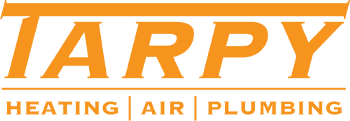
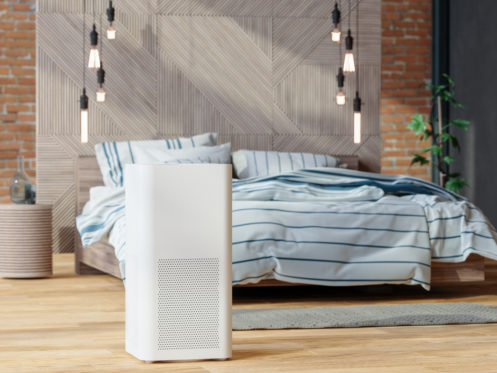
 SPECIALISTS
SPECIALISTS